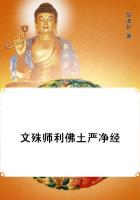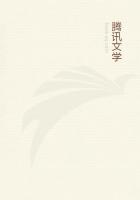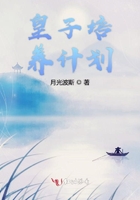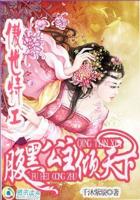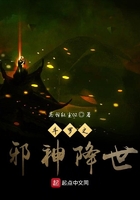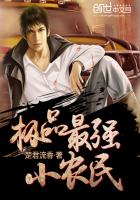The uses of adversity are beyond measure strange. As a professor, he regarded himself as a failure. Without false modesty he thought he knew what he meant. He had tried a great many experiments, and wholly succeeded in none. He had succumbed to the weight of the system. He had accomplished nothing that he tried to do. He regarded the system as wrong; more mischievous to the teachers than to the students; fallacious from the beginning to end. He quitted the university at last, in 1877, with a feeling. that, if it had not been for the invariable courtesy and kindness shown by every one in it, from the President to the injured students, he should be sore at his failure.
These were his own feelings, but they seemed not to be felt in the college.
With the same perplexing impartiality that had so much disconcerted him in his undergraduate days, the college insisted on expressing an opposite view. John Fiske went so far in his notice of the family in "Appleton's Cyclopedia," as to say that Henry had left a great reputation at Harvard College; which was a proof of John Fiske's personal regard that Adams heartily returned; and set the kind expression down to camaraderie . The case was different when President Eliot himself hinted that Adams's services merited recognition. Adams could have wept on his shoulder in hysterics, so grateful was he for the rare good-will that inspired the compliment; but he could not allow the college to think that he esteemed himself entitled to distinction. He knew better, and his was among the failures which were respectable enough to deserve self-respect. Yet nothing in the vanity of life struck him as more humiliating than that Harvard College, which he had persistently criticised, abused, abandoned, and neglected, should alone have offered him a dollar, an office, an encouragement, or a kindness.
Harvard College might have its faults, but at least it redeemed America, since it was true to its own.
The only part of education that the professor thought a success was the students. He found them excellent company. Cast more or less in the same mould, without violent emotions or sentiment, and, except for the veneer of American habits, ignorant of all that man had ever thought or hoped, their minds burst open like flowers at the sunlight of a suggestion.
They were quick to respond; plastic to a mould; and incapable of fatigue.
Their faith in education was so full of pathos that one dared not ask them what they thought they could do with education when they got it. Adams did put the question to one of them, and was surprised at the answer: "The degree of Harvard College is worth money to me in Chicago." This reply upset his experience; for the degree of Harvard College had been rather a drawback to a young man in Boston and Washington. So far as it went, the answer was good, and settled one's doubts. Adams knew no better, although he had given twenty years to pursuing the same education, and was no nearer a result than they. He still had to take for granted many things that they need not -- among the rest, that his teaching did them more good than harm.
In his own opinion the greatest good he could do them was to hold his tongue.
They needed much faith then; they were likely to need more if they lived long.
He never knew whether his colleagues shared his doubts about their own utility. Unlike himself, they knew more or less their business. He could not tell his scholars that history glowed with social virtue; the Professor of Chemistry cared not a chemical atom whether society was virtuous or not. Adams could not pretend that mediæval society proved evolution; the Professor of Physics smiled at evolution. Adams was glad to dwell on the virtues of the Church and the triumphs of its art: the Professor of Political Economy had to treat them as waste of force. They knew what they had to teach; he did not. They might perhaps be frauds without knowing it; but he knew certainly nothing else of himself. He could teach his students nothing; he was only educating himself at their cost.
Education, like politics, is a rough affair, and every instructor has to shut his eyes and hold his tongue as though he were a priest. The students alone satisfied. They thought they gained something. Perhaps they did, for even in America and in the twentieth century, life could not be wholly industrial. Adams fervently hoped that they might remain content; but supposing twenty years more to pass, and they should turn on him as fiercely as he had turned on his old instructors -- what answer could he make? The college had pleaded guilty, and tried to reform. He had pleaded guilty from the start, and his reforms had failed before those of the college.
The lecture-room was futile enough, but the faculty-room was worse.
American society feared total wreck in the maelstrom of political and corporate administration, but it could not look for help to college dons. Adams knew, in that capacity, both Congressmen and professors, and he preferred Congressmen.
The same failure marked the society of a college. Several score of the best- educated, most agreeable, and personally the most sociable people in America united in Cambridge to make a social desert that would have starved a polar bear. The liveliest and most agreeable of men -- James Russell Lowell, Francis J. Child, Louis Agassiz, his son Alexander, Gurney, John Fiske, William James and a dozen others, who would have made the joy of London or Paris -- tried their best to break out and be like other men in Cambridge and Boston, but society called them professors, and professors they had to be. While all these brilliant men were greedy for companionship, all were famished for want of it. Society was a faculty-meeting without business. The elements were there; but society cannot be made up of elements -- people who are expected to be silent unless they have observations to make -- and all the elements are bound to remain apart if required to make observations.

